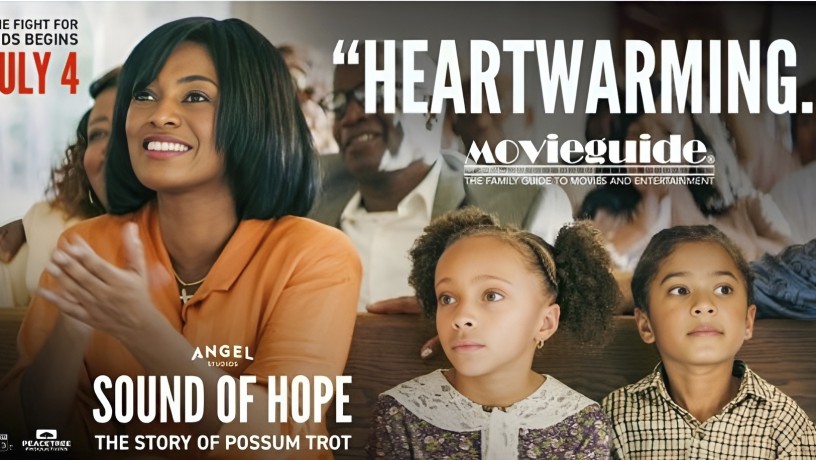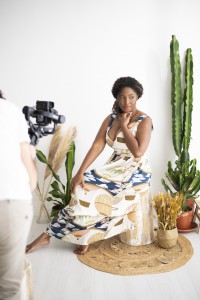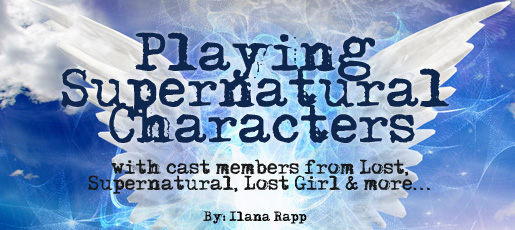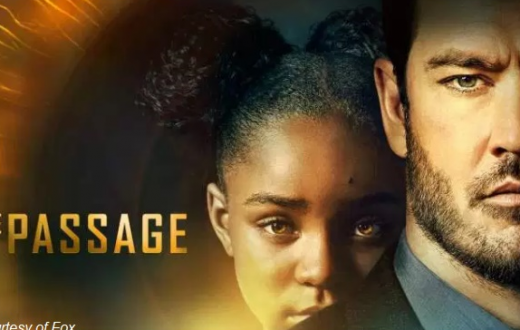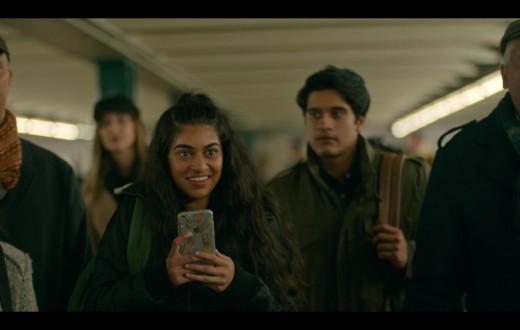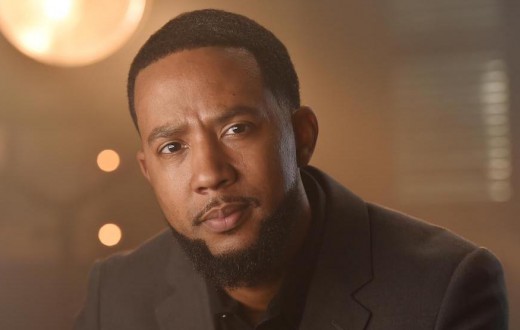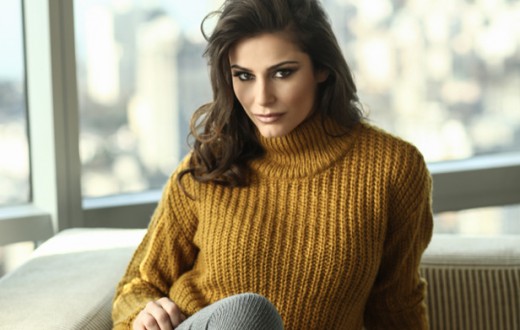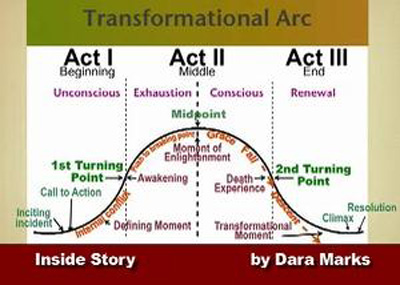Jillian Reeves is a multi-faceted talent who writes, produces, and directs. And now she’s a part of the controversial film Sound of Hope: The Story of Possum Trot. We had the pleasure of interviewing Reeves and got to really dig into her acting process.
Reeves directed, wrote, produced, and starred in the short film Broken, which explores the topic of serious mental illness with poignant resonance. This project deepens her off-screen advocacy for Mental Health Awareness and efforts to #EndTheStigma, particularly within the African-American community. Currently, she is developing Broken into a feature-length film with the goal of amplifying its impact and reach.
Reeves is also an expert coach when it comes to accents. Find out more about her sessions below!
You star as “Diann” in the film Sound of Hope: The Story of Possum Trot which is based on the true story of Donna and Reverend Martin who helped spearhead 22 families from a rural Black church in East Texas to adopt 77 kids from the foster system. Tell us about your audition and any callbacks.
I got the audition through my agent, but it was one of those chaotic times in life where the last thing I was thinking about was auditioning. I was out of state taking care of my mom and juggling a million things so I didn’t have much time to prepare. I think there were three or four scenes that I had a day or two to work on. Luckily, I felt like I understood the character pretty quickly so I made some strong choices, nailed a sheet on the wall for a backdrop, got my boyfriend at the time to read with me and just went for it. About three or four weeks later, I got the call that I booked the role! It’s funny how sometimes the auditions you don’t stress over turn out to be the magic ones. When you make a strong choice and just have fun and not overthink it, that’s often when the good stuff happens.
Sound of Hope: The Story of Possum Trot may be very controversial. Were you given any instruction by production on how to respond to inquiries you may receive regarding the topic?
The production team didn’t provide specific talking points, but after a lot of pre-screenings, the key talking points of the film became clear to us. We deeply cared about the film’s message and always aimed to discuss it honestly yet positively. When you are deeply invested in a project, it’s crucial to ensure that your discussions highlight the films importance rather than unintentionally distract from the film’s message.
You are the instructor at AAA Masterclass (Acting, Auditions & Accents). At what point in your career did you feel comfortable enough to teach others? What mistakes did you make?
My teaching career started back in graduate school when I was in Chicago. At the time, I helped models transition to acting as one of my many survival jobs. After moving to LA, just as the self-tape revolution was kicking off, I began coaching actors and recording their auditions. It was encouraging to see them start to book roles. I knew I was doing something right. I started holding weekly classes in my apartment in the Valley, but managing my schedule became challenging, especially during pilot season and when I landed my own projects. Eventually, I shifted back to one-on-one coaching. Then COVID hit, and everything went online almost overnight. I took that opportunity to move to Italy and began teaching auditions and accent reduction online to European actors. Now back in the US, I focus on individual coaching and occasionally run group masterclasses. I’m also looking forward to launching some pre-recorded masterclasses soon.
Jillian Reeves. Photo by Virginia-Niccolucci.
Part of your teachings is how to streamline accents into a more neutral, Standard American English accent. How does a neutral accent enhance the actor’s chance of securing a role?
Versatility really is key for actors, and being able to adapt your accent can open up a whole lot more opportunities. While I often include elements of my original accent during auditions, knowing how to switch to a neutral or different accent is crucial. Actually, to master an accent that’s not your own, it’s super helpful to start with a neutral base and then layer the new accent on top. Otherwise, you risk ending up with something that sounds a bit muddled or just “off”. The way a character speaks is a huge part of their identity and the story being told. Take shows like ‘The Wire’ or ‘The Sopranos’—the accents are so tied to the world of the show that if you can’t nail the accent, no matter how talented you are, you just won’t fit the part.
You grew up in Irmo, South Carolina, with a deep, regional accent. How did you overcome your accent? Do you still have to THINK when doing your Standard accent, or now it comes naturally? Does your accent come back when you visit home?
I overcame my deep Southern accent through diligent training, particularly with classes based on Edith Skinner’s methods and learning the International Phonetic Alphabet (IPA). The IPA was crucial because it helped me both hear and articulate the correct sounds. When you have a strong accent, training your ear to recognize how things “should” sound is the first step before you can produce those sounds accurately. Now, using a neutral accent is second nature, unless I’m super tired—then a bit of the Southern twang might sneak out! It’s funny; when I go home, everyone says I sound like I’m from “the city,” but my friends in LA definitely notice the Southern influence. So, it’s probably a mix!
You’ve attended A-list events such as the NAACP Image Awards, Kodak’s Oscar Gala, Movieguide Awards Gala, Pan African Film Festival, and more. How did the opportunity arise for you to attend these events?
It really depends on the event! I was invited to the Image Awards because we were promoting a show on the same network. For the Pan African Film Festival, I attended as a filmmaker because my film was selected to be in the festival. Invitations to other events like the Movieguide Awards Gala and Kodak’s Oscar Gala came through the diligent efforts of my fantastic PR team at Katz. They do an incredible job getting me into these fantastic events!
For events, including Red Carpet, do you have a team help you get ready or do you dress yourself?
Preparation for events, including red carpets, really depends on the event’s scale and my role in it. For high-profile events like the Image Awards, where TV One was a sponsor and we were promoting a new show, I received the full VIP treatment—towncar, hair, makeup, everything, except for my outfit, which my stylist handled. At the Pan African Film Festival, since I attended as a filmmaker, I styled myself but had a makeup artist work on my makeup. For extremely high-profile events like an Oscar Gala, I definitely bring in my team for styling and makeup. However, for less formal events or certain red carpets, I might do it all myself. My PR team at Katz is fantastic at connecting me with great stylists, and in LA, Mila Thomas and Lusine Abikzer are my go-to makeup artists. So for me the level of level of support I call in really depends on the details.
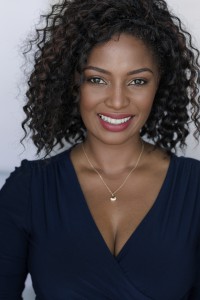
Regarding acting, how do you prepare for a new role? Do you have any specific techniques or rituals that help you get into character?
When preparing for a new role, I start with a thorough read-through of the entire script, mining it for clues about my character. I pay attention not only to what my character says but also to what others say about them and how they react to me. Initially, I read for the broad story to understand the character’s journey. Once I have a sense of the character’s arc, I break down individual scenes. I go over my lines and then focus on the lines of the other characters, which really helps in understanding the dynamics of the scenes. At this point, I usually have a good idea of where my character and I are alike and where we differ. I use that to find an “in” and start building the character’s life—how they think, why they act and react the way they do, and even how they move. All the fun, creative aspects come after a thorough analysis and understanding of the script.
Over the years, how have you seen the film and television industry evolve, particularly regarding opportunities for women? Are there any changes you hope to see in the future?
It’s been amazing to see the industry evolve, especially with more opportunities for women. There are more female-led projects and diverse roles now, which is fantastic. But we’re not done yet! I’d love to see even more women in leadership roles, both in front of and behind the camera. We’ve made great strides, but there’s always room for more representation and inclusion.
Anything else you’d like to say?
Acting is a journey filled with ups and downs, and it’s crucial to take care of yourself both physically and mentally. The old saying “hurry up and wait” is so true in this business, which can often feel like feast or famine! It often feels like you’re either so busy you can’t catch your breath, or things are so slow you wonder what’s next. It’s up to us as artists to find balance in our lives and create a beautiful, full story along the way. Travel, volunteer for worthy causes, use your voice, and never stop creating.
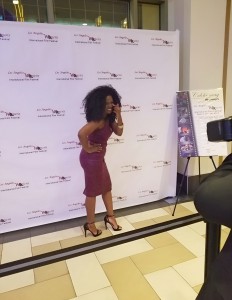 Always prioritize self-care and don’t be afraid to ask for help. It’s perfectly okay to take time for yourself to recharge and reset. At AAA Masterclass, we’re developing a wellness kit for actors and creatives, which I’m really excited about. It’s all about enjoying the journey while working towards our goals!
Always prioritize self-care and don’t be afraid to ask for help. It’s perfectly okay to take time for yourself to recharge and reset. At AAA Masterclass, we’re developing a wellness kit for actors and creatives, which I’m really excited about. It’s all about enjoying the journey while working towards our goals!

